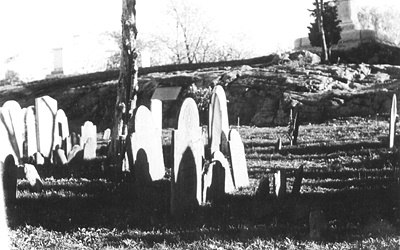All Nonfiction
- Bullying
- Books
- Academic
- Author Interviews
- Celebrity interviews
- College Articles
- College Essays
- Educator of the Year
- Heroes
- Interviews
- Memoir
- Personal Experience
- Sports
- Travel & Culture
All Opinions
- Bullying
- Current Events / Politics
- Discrimination
- Drugs / Alcohol / Smoking
- Entertainment / Celebrities
- Environment
- Love / Relationships
- Movies / Music / TV
- Pop Culture / Trends
- School / College
- Social Issues / Civics
- Spirituality / Religion
- Sports / Hobbies
All Hot Topics
- Bullying
- Community Service
- Environment
- Health
- Letters to the Editor
- Pride & Prejudice
- What Matters
- Back
Summer Guide
- Program Links
- Program Reviews
- Back
College Guide
- College Links
- College Reviews
- College Essays
- College Articles
- Back
Death of a Law
The Liberal Party’s dignity wasn’t the only thing that died painfully in the May 2nd federal elections. While Canadians were voting, officials watched as S.329 of the Canada Elections Act was mercilessly violated over and over again, and they were helpless to stop it. The law, enacted in 1938, states: “No person shall transmit the result or purported result of the vote in an electoral district to the public in another electoral district before the close of all of the polling stations in that other electoral district.” Simply put, one cannot reveal voting results to a riding where booths are still open. I doubt our government envisioned social networking 73 years ago, a technology absolutely perfect in committing the very crime they outlined.
Before the elections, officials said they were prepared to enforce the law. A spokesperson for Elections Canada, John Enright, said, “329 is still in the books. People should act in consequence to 329 and the possible repercussions." And these repercussions are severe. Theoretically, if I were to post “Conservatives win in York Center?!? I’m in an alternate universe” on my Facebook wall, I would face five years in jail and a $25,000 fine.
This did not deter everyone from breaking what was labelled the “Election Twitter Ban”. At first, social media users exercised caution: “If I used to have three oranges, and someone gave me four more oranges, would I go to jail?” one Twitter user posted as NDP votes surged in Eastern Canada (with polls still open elsewhere). Within half an hour, though, riding results were revealed undisguised.
The statute’s outdatedness is a reason for its violation. Originally intended for radio broadcasts, one might assume it remains in existence because lawmakers accept its futility, but want to save the effort involved in making amendments. An example of such a law – never scrapped due to a collective understanding of its meaninglessness in modern times – is Criminal Code S. 163(d). Under this law, it is illegal to advertise products and medicines whose purpose is “restoring sexual virility or curing venereal diseases or diseases of the generative organs.” However, while police don’t raid the publishers of Golfer’s Digest on a count of their Viagra ads, they worked hard on enforcing S.329 four elections ago.
In 2000 the RCMP charged Paul Bryan, a software developer from Vancouver, with violating the law. During the elections, Bryan prematurely released voting results through his website, and came to pay a $1,000 fine. In 2007, the Supreme Court upheld S.329 by a vote of 5-4.
The purpose of S.329 is to prevent voter sway due to revealed results. Some say only faulty logic supports the idea that knowing election results elsewhere influences voters. Do numbers known early on Election Day really have more pull than advanced polls? Either way, Elections Canada makes itself look asinine by threatening such absurd penalties.
However, I cannot imagine the government agreeing. If they want to uphold S.329 as they say they do, there is an alternative to ridiculous penalties and social network monitoring which has been overlooked. The solution is to refrain from revealing individual constituency results until all votes (from the whole of Canada) are counted. If this is done, numbers from all ridings can be released at the same time and after each voting station closes. If you stress that this solution seems too simple, you’re somewhat right – it has its flaws.
First, Canadians will have to live in ignorance for a few desperate hours before their new MPs are announced.
Secondly, news channels will have nothing to fill the void they call “Live Election Coverage”.
And finally - most problematical - the idea is far too logical for Parliament Hill.
I foresee that before the next election the federal government will assemble a costly committee to tackle this issue. Ideas and impassioned arguments will fly around a boardroom packed with experts. One proposal might be more police monitoring the internet; another may be to abandon S.329 and letting it go the way of Criminal Code S.163 (d), down the road of eventual ridicule. Or perhaps, just possibly, the obvious and straightforward idea of revealing all voting results at the same time might cross somebody’s mind.
Any way you look at it, the law as it currently exists was killed by social networking on May 2nd. Its enforcement by Elections Canada would be like an attempt to revive the dead – an act that rarely works. The government needs to accept this and abandon the law, or change how they reveal election results.

Similar Articles
JOIN THE DISCUSSION
This article has 0 comments.
